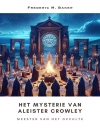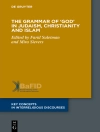Evelyn Underhill’s ‘Mysticism’ offers a profound exploration of the spiritual journey through the lens of mysticism, artfully weaving together philosophical inquiry and experiential insight. Underhill employs a lyrical and contemplative style, inviting readers to apprehend the depths of the mystical experience. She contextualizes this journey within the broader literary framework of early 20th-century spirituality, deftly engaging with both historical and contemporary figures in mysticism, thereby establishing a rich dialogue across ages that enriches the reader’s understanding of the subject. Evelyn Underhill, an early feminist thinker and a pioneer in the study of mysticism, utilized her theological training and personal spiritual experiences to craft this insightful work. Her background in philosophical theology and her own quest for deeper spiritual meaning led her to delve into the writings of mystics like St. John of the Cross and Teresa of Avila. This profound understanding and personal connection to the subject of mysticism permeate her writing, providing an authentic voice that resonates with seekers of spiritual truth. ‘Mysticism’ is an essential read for anyone interested in the intersection of spirituality and literature. Underhill’s rich prose and thoughtful meditations provide an accessible yet profound exploration of a complex topic, making it suitable for both scholars and lay readers alike. This book encourages one to embark on their own spiritual journey, illuminating the path toward a deeper understanding of the divine.
Over de auteur
Evelynn Underhill (1875–1941) was a renowned English writer and pacifist known for her numerous works on religion and spiritual practice, particularly Christian mysticism. She was one of the most widely read writers on such matters in the first half of the 20th century. Her seminal work, ‘Mysticism: A Study in Nature and Development of Spiritual Consciousness’, first published in 1911, remains a classic in the field. In it, Underhill outlines the process of the mystical journey in four stages: awakening, purification, illumination, and union. Underhill sought to make mysticism accessible to the layperson, arguing that it was not merely the purview of saints and monks but a natural extension of the human experience, accessible to all who pursued it with diligence and sincerity. Underhill’s literary style was both scholarly and poetic, making complex theological concepts approachable for her readership. Her work, characterized by meticulous research and thoughtful introspection, bridged a gap between the academic study of religion and practical spiritual guidance. As a highly respected figure in mystical thought, Underhill’s influence extends beyond her own generation and continues to make a significant impact on contemporary spiritual studies. Her work has inspired countless individuals to explore the depths of their own spiritual lives and has provided a framework for understanding the mystical experience as a universal, deeply transformative journey.












